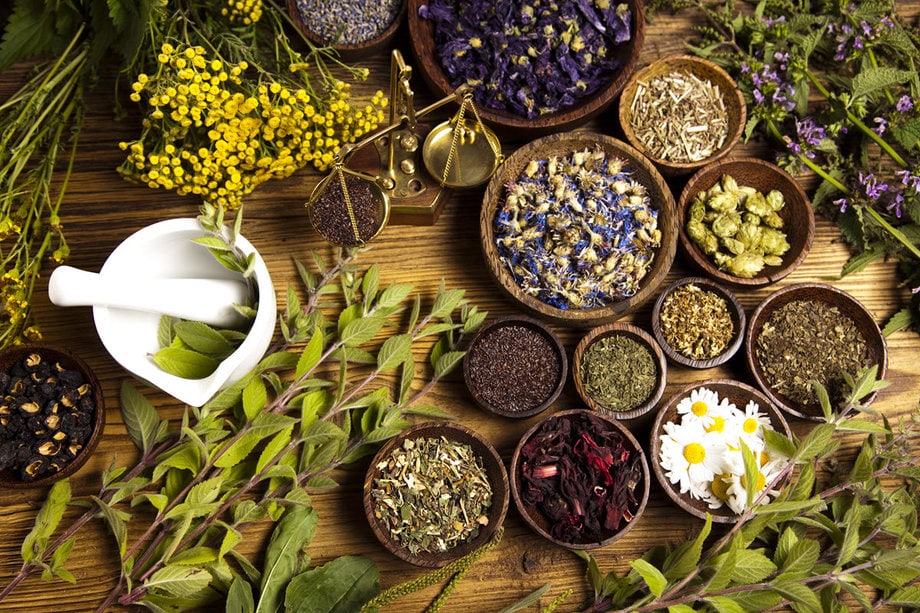Can Herbal Teas and Supplements Promote Better Sleep

This article examines the potential of herbal teas and supplements to improve sleep quality. Drawing upon scientific research, it explores the benefits of herbal teas in promoting better sleep and investigates the efficacy of various supplements in enhancing sleep quality.
Additionally, it provides an overview of common herbal tea and supplement options available for those seeking a restful night’s sleep. By considering the factors to consider when choosing the right herbal tea or supplement for individual sleep needs and offering tips for incorporating them into a bedtime routine, this article aims to provide evidence-based insights into the potential benefits of herbal teas and supplements for promoting better sleep.
Key Takeaways
- Herbal teas and supplements, such as chamomile and valerian root, have been scientifically proven to improve sleep quality.
- Chamomile tea contains compounds that induce sleep and promote relaxation, while also possessing anti-inflammatory and antioxidant properties that reduce anxiety and stress.
- Lavender tea has a calming effect on the body and mind, improving sleep quality.
- Passionflower supplements reduce anxiety and promote relaxation, preparing the body for sleep.
The Science Behind Herbal Teas and Supplements for Sleep
The effectiveness of herbal teas and supplements for promoting better sleep is supported by scientific research. Numerous studies have examined the impact of herbal teas and supplements on sleep quality, highlighting their potential benefits in improving both sleep duration and quality.
For instance, chamomile tea has been shown to possess sedative properties, promoting relaxation and reducing anxiety, thus facilitating better sleep. Similarly, valerian root supplements have been found to enhance sleep quality and decrease the time it takes to fall asleep.
However, it is important to consider the potential risks and side effects associated with the use of herbal teas and supplements for sleep. Some individuals may experience allergic reactions or adverse effects, and certain herbal teas and supplements may interact with medications.
Therefore, it is advisable to consult with a healthcare professional before using herbal teas and supplements for sleep.
Understanding the Benefits of Herbal Teas for Better Sleep
Understanding the potential advantages of incorporating herbal infusions into one’s evening routine is crucial for comprehending their potential effects on sleep.
One such herbal infusion that has gained popularity for its sleep-promoting properties is chamomile tea. Chamomile tea is often used as a natural remedy for insomnia, offering a range of benefits that may contribute to better sleep.
Research suggests that chamomile tea contains compounds with sedative properties, such as apigenin, which may help to induce sleep and promote relaxation. Additionally, chamomile tea is known for its anti-inflammatory and antioxidant properties, which may help to reduce anxiety and stress, both of which can interfere with sleep.
Overall, incorporating chamomile tea into one’s evening routine may offer a natural and effective way to promote better sleep and improve overall sleep quality.
Exploring the Power of Supplements in Promoting Sleep Quality
This discussion will examine the benefits of herbal teas and the effectiveness of supplements in promoting sleep quality.
Herbal teas have long been used as a natural remedy for sleep issues due to their calming properties.
On the other hand, supplements have gained popularity for their potential to enhance sleep through various mechanisms.
Herbal Tea Benefits
One potential benefit of herbal teas is their potential to improve sleep quality. Herbal teas offer a variety of flavors, allowing individuals to find a taste that suits their preferences. Some popular herbal tea flavors that have been suggested to promote better sleep include chamomile, lavender, valerian root, and lemon balm.
In addition to the diverse flavors, there are various brewing methods that can be used to prepare herbal teas. These methods include steeping the herbs in hot water, using a tea infuser, or boiling the herbs to create a decoction. The different flavors and brewing methods provide a range of options for individuals seeking to incorporate herbal teas into their nighttime routine to support better sleep.
Effectiveness of Supplements?
The effectiveness of dietary supplements in improving sleep quality is a topic of ongoing research and debate in the scientific community.
One commonly studied supplement is melatonin, a hormone naturally produced by the body that regulates sleep-wake cycles. Research suggests that melatonin supplementation can be effective in promoting sleep and treating certain sleep disorders, such as jet lag and insomnia. However, the effectiveness of melatonin supplements may vary depending on individual factors such as age, dosage, and underlying health conditions.
Additionally, it is important to consider the potential side effects of herbal supplements used to promote sleep. While some herbal supplements, such as chamomile and valerian root, have been traditionally used for their calming effects, more research is needed to determine their efficacy and potential side effects.
Therefore, further scientific exploration is necessary to establish the true effectiveness and safety of dietary supplements in improving sleep quality.
Common Herbal Tea and Supplement Options for a Restful Night’s Sleep
Several herbal tea and supplement options are commonly recommended for promoting a restful night’s sleep. These options include:
- Chamomile tea: Chamomile is a popular choice due to its calming and sedative properties. It can help reduce anxiety and promote relaxation, making it easier to fall asleep.
- Valerian root supplement: Valerian root is commonly used as a natural remedy for insomnia. It can improve sleep quality and reduce the time it takes to fall asleep.
- Lavender tea: Lavender has been shown to have a calming effect on the body and mind. Drinking lavender tea before bed can help induce sleep and improve sleep quality.
- Passionflower supplement: Passionflower is known for its ability to reduce anxiety and promote relaxation. It can help calm the mind and prepare the body for a restful night’s sleep.
These herbal tea options and supplements offer potential benefits for promoting better sleep, but it is important to consult with a healthcare professional before starting any new herbal regimen.
How to Choose the Right Herbal Tea or Supplement for Your Sleep Needs
This discussion focuses on the topic of effective herbal sleep aids and how to choose the right supplement for improving sleep quality.
It is important to consider the efficacy of herbal sleep aids in promoting better sleep as well as the factors to consider when selecting the most suitable supplement.
Effective Herbal Sleep Aids
Numerous studies have examined the potential efficacy of various herbal sleep aids in promoting better sleep. These effective herbal sleep remedies have been found to be natural sleep aids that can help individuals improve their sleep quality.
Here are four examples of such herbal sleep aids:
- Valerian root: Valerian root is a popular herbal remedy known for its sedative properties. It has been shown to reduce the time it takes to fall asleep while also improving sleep quality.
- Chamomile: Chamomile tea is often recommended as a natural sleep aid due to its calming properties. It can help relax the body and mind, promoting better sleep.
- Lavender: The scent of lavender has been found to have a calming effect on the nervous system, making it a popular choice for promoting relaxation and sleep.
- Passionflower: Passionflower has been used for centuries as a natural remedy for insomnia. It has been shown to increase sleep quality and reduce sleep disturbances.
These herbal sleep aids offer natural alternatives for individuals seeking better sleep without relying on pharmaceutical sleep aids.
Choosing the Right Supplement
Various studies have explored the selection process for identifying suitable remedies to enhance sleep quality and duration. When choosing the right brand of herbal teas and supplements to promote better sleep, it is important to consider potential side effects.
Research suggests that certain herbal teas and supplements may have sedative effects, such as chamomile and valerian root. However, it is crucial to note that these substances can also cause adverse reactions, including allergic reactions, dizziness, and gastrointestinal issues.
Therefore, individuals should carefully read product labels, consult with healthcare professionals, and conduct thorough research to ensure the safety and efficacy of the chosen brand.
Additionally, it is essential to consider individual factors, such as preexisting medical conditions and medication interactions, before incorporating herbal teas and supplements into one’s sleep routine.
Tips and Tricks for Incorporating Herbal Teas and Supplements Into Your Bedtime Routine
To effectively incorporate herbal teas and supplements into your bedtime routine, it is important to consider tips and tricks that optimize their potential benefits for promoting better sleep. Here are four key considerations:
- Different types of herbal teas for better sleep:
- Chamomile tea is known for its calming properties and can help promote relaxation before bed.
- Valerian root tea is another popular option due to its sedative effects.
- Lavender tea can also aid in promoting sleep by reducing anxiety and inducing relaxation.
- Lastly, passionflower tea has been shown to improve sleep quality and reduce insomnia symptoms.
- Potential side effects of using herbal supplements for sleep:
- While herbal supplements are generally considered safe, it is important to be aware of potential side effects.
- Some common side effects include dizziness, gastrointestinal disturbances, and allergic reactions.
- Additionally, certain herbal supplements may interact with medications, so it is important to consult with a healthcare professional before incorporating them into your routine.
Frequently Asked Questions
Are There Any Potential Side Effects or Risks Associated With Using Herbal Teas and Supplements for Sleep?
The use of herbal teas and supplements for sleep may be associated with potential risks and side effects. Safety concerns regarding their use should be taken into consideration, as further research is needed to fully understand their effects.
How Long Does It Typically Take to See the Effects of Herbal Teas and Supplements on Sleep Quality?
The time it takes for herbal teas and supplements to improve sleep quality varies based on individual factors. Identifying the best herbal teas and supplements for promoting better sleep requires further research and consideration of various factors such as their ingredients and potential effects.
Can Herbal Teas and Supplements Be Used as a Long-Term Solution for Sleep Problems?
The long-term effectiveness of herbal teas and supplements as a solution for sleep problems remains unclear. Alternative options, such as cognitive-behavioral therapy for insomnia or prescription medications, may be more reliable for sustained improvement in sleep quality.
Are There Any Specific Herbal Teas or Supplements That Are More Effective for Certain Sleep Issues, Such as Insomnia or Restless Leg Syndrome?
The effectiveness of specific herbal teas for insomnia and supplements for restless leg syndrome is a topic of interest. Research exploring the therapeutic potential of certain herbal teas and supplements for these sleep issues is necessary.
Can Herbal Teas and Supplements Interact With Other Medications or Medical Conditions?
Herbal tea and supplement interactions with medications should be carefully considered due to potential risks and side effects. Some herbal teas and supplements may interact with certain medications or medical conditions, which could pose health risks.








